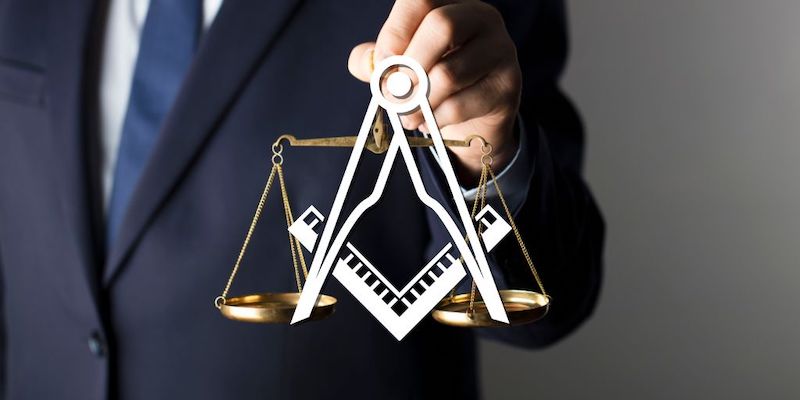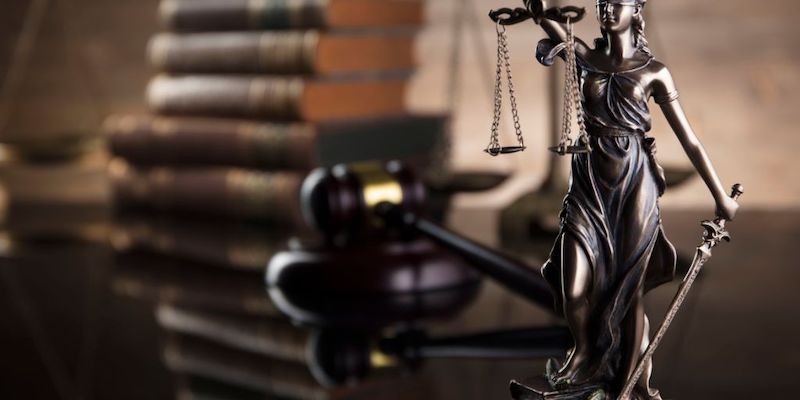Becoming a Freemason is a decision that requires careful consideration, as it is a commitment to a lifetime of brotherhood, charity, and service.
One of the questions that often arises is whether a lawyer can become a Freemason.
The answer is yes, as long as they meet the requirements set forth by the Masonic lodge.
The requirements to become a Freemason include believing in a Supreme Being, attaining the required legal age, being recommended by two other Freemasons, and joining out of one’s own free will and accord.
And also… being able to support oneself and one’s family, conceding to moral standards, not having any mercenary motives, being a rule follower, and having a favorable opinion.
As long as a lawyer meets these requirements, they are eligible to become a Freemason.
It is also worth noting being a lawyer does not give one any special privileges within the Masonic lodge.
Freemasonry values equality among its members and does not differentiate based on profession or social status.
Lawyers who become Freemasons are expected to uphold the same moral and ethical standards as all other members and to contribute to the lodge’s charitable and community service efforts.

Can a Lawyer Become a Freemason?
Ethical Considerations for Lawyers
Lawyers are held to a high ethical standard and must adhere to certain rules of conduct.
One of the most important ethical considerations for lawyers who are interested in becoming Freemasons is the potential for conflicts of interest.
Lawyers must avoid any situation where their personal interests conflict with their professional duties, and joining a fraternal organization like Freemasonry could potentially create a conflict of interest if the lawyer is representing a client who is also a member of the organization.
Perception of Conflict of Interest
Even if there is no actual conflict of interest, the perception of one can be damaging to a lawyer’s professional reputation.
If a lawyer is representing a client who is not a member of the organization but is perceived to be receiving preferential treatment because of their membership in Freemasonry, it could damage the lawyer’s reputation and credibility.
Impact on Professional Reputation
Joining Freemasonry could also impact a lawyer’s professional reputation in other ways.
Some people view Freemasonry as a secret society, and may be suspicious of lawyers who are members.
This could make it more difficult for the lawyer to attract clients or to be taken seriously in the legal community.
The Benefits of Being a Freemason for Lawyers

Becoming a Freemason can offer many benefits to lawyers beyond just a sense of belonging to a fraternity.
In this section, we will explore some of the benefits being a Freemason can offer lawyers.
Networking Opportunities
One of the most significant benefits of being a Freemason is the networking opportunities it provides.
Freemasonry is a global organization with members from all walks of life, which, yes, includes many lawyers.
By joining a lodge, lawyers can connect with other lawyers and professionals in their field, creating a network of contacts that can be invaluable for professional growth and development.
Professional Development
Freemasonry also offers opportunities for professional development.
Many lodges offer educational programs and workshops that can help lawyers improve their skills and knowledge.
These programs cover a wide range of topics, including leadership, public speaking, and ethics.
By participating in these programs, lawyers can improve their professional skills and become better advocates for their clients.
Community Involvement
Freemasonry is also known for its charitable work and community involvement.
Many lodges organize community service projects and fundraisers, providing lawyers with opportunities to give back to their communities.
By participating in these projects, lawyers can build relationships with community leaders and demonstrate their commitment to serving the public.
The Requirements to Join Freemasonry
To become a Freemason, an individual must meet certain requirements. Here are the three main requirements:
Age Requirement
The minimum age requirement for joining Freemasonry varies by jurisdiction. In most cases, an individual must be at least 18 years old.
However, in some jurisdictions, the minimum age requirement is 21. It is important to check with the local lodge to determine the specific age requirement in that area.
Belief in a Supreme Being
Another requirement for joining Freemasonry is a belief in a Supreme Being.
This belief is essential, but Freemasonry is not concerned with theological distinctions or particular religious beliefs.
Members of the organization come from different religious backgrounds, but they all share a belief in a higher power.
Good Character
Being of “good character” is a fundamental requirement for joining Freemasonry.
An individual must be of good moral character, meaning they have a reputation for being honest and upright.
The organization expects its members to be law-abiding citizens who are loyal to their country and respectful of the law.
In addition to these three main requirements, there may be other requirements that vary by jurisdiction.
For example, some lodges may require a candidate to be a resident of the area for a certain period of time before being considered for membership. Others may require a candidate to be sponsored by a current member.
Code of Conduct for Freemasons

To maintain the integrity of the organization, Freemasons are expected to adhere to a strict code of conduct.
Masonic Obligations
One of the fundamental principles of Freemasonry is that members are obligated to uphold certain moral and ethical standards.
These obligations include:
- To be honest and truthful in all dealings with others.
- To be respectful of others and their beliefs.
- To act with integrity and uphold the law.
- To be charitable and compassionate towards those in need.
- To maintain the confidentiality of Masonic secrets.
Confidentiality
Confidentiality is an essential aspect of Freemasonry.
Members are required to keep the secrets of the organization and its rituals confidential.
This includes not disclosing any of the signs, symbols, or passwords used within the fraternity.
Charitable Work
Charitable work is a cornerstone of Freemasonry.
Members are encouraged to give back to their communities and help those in need.
This can include donating time, money, or resources to charitable organizations or participating in community service projects.
The code of conduct for Freemasons is a set of ethical and moral guidelines that members are expected to follow.
It includes obligations to uphold certain standards, maintain confidentiality, and engage in charitable work. Adherence to this code helps to ensure the integrity and reputation of the organization.
In conclusion, becoming a Freemason can be a rewarding experience for lawyers who are looking to build their moral character and connection to their community.
Freemasonry is built upon the core tenets of Brotherly love and affection, relief, and truth.
Through a commitment to these values, all Freemasons share the common goal of making good men better.
However, it is important to note that becoming a Freemason may not be for everyone.
It requires a significant time commitment and dedication to the values and principles of the organization.
Additionally, there may be fees associated with membership and participation in various events and activities.
It is important to also note being a Freemason may not be viewed positively by everyone, and some may have misconceptions or negative opinions about the organization and thus, it’s important for lawyers to thoroughly research and reflect on their decision before committing to joining.